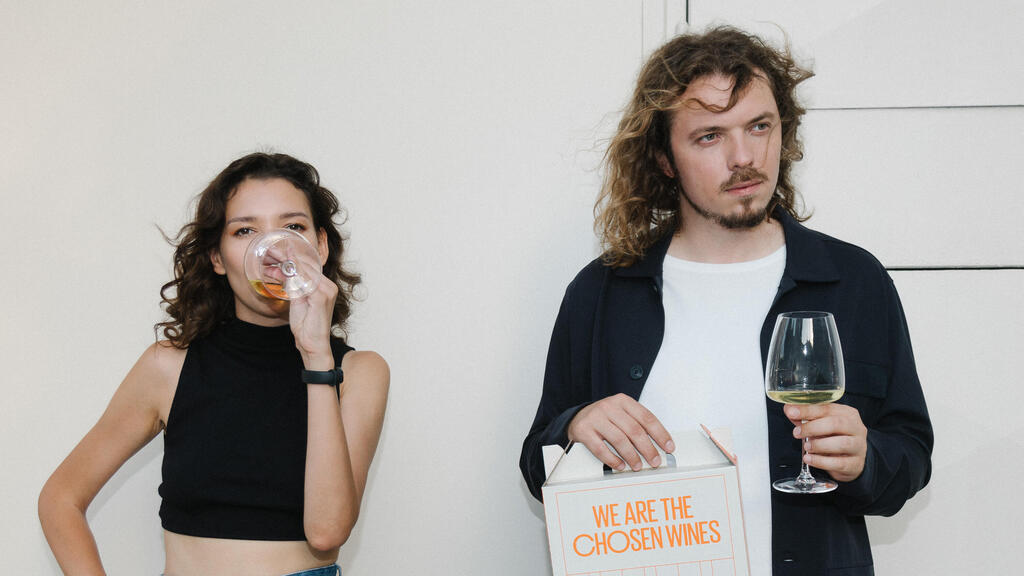
Boarding Pass
The Winest is here to help us stop whining about wine
The company has raised a total of $800,000 to become a digital sommelier for wine lovers
“Personalized services catering to specific niche audiences are currently in high demand. This demand has surged in recent years as more people turn to online shopping, which often lacks the personalized experience one can find offline. Therefore, Winest presents a personalized solution for wine lovers keen on discovering and enjoying a variety of wines, built upon three core principles: accessibility, a thoughtfully curated selection, and a personalized approach,” said the company.
Born out of a ‘problem’ during the pandemic, users can determine whether they prefer red or white wine, still or sparkling, coffee with or without milk, strong or mild tea, and whether they lean towards nuts, almonds, cashews, or macadamias. Additionally, the questionnaire delves into aromatic preferences such as citrus, tropical fruits, and berries.
Following the completion of this quiz, the system will use the gathered information to assign each user to a specific taste profile developed by the company. Based on this profile, the system will recommend wines that best align with the user's individual preferences.
“Each person possesses a distinctive flavor profile that can assist in identifying the wines they are more likely to savor,” the company continued. “Throughout the development process, it became evident that this profile could be identified and digitized. In a similar vein, wines could be digitized based on fundamental parameters, paving the way for the creation of an algorithm capable of matching wines using these known parameters. This marked the inception of the project's pivotal feature – the digital sommelier.”
You can learn more about The Winest below.
Company Name: The Winest Ltd.
Sector: Foodtech
Product/Service description:
Winest.store is a foodtech startup that has developed a unique technology to personalize wine for consumers. A technological model matches the individual tastes of each and every customer with the wines marketed by the company.
Over the past year, Winest has assembled a team of experienced wine experts, including Tazo Tamazishvili, recognized as one of the world's top sommeliers by Gault&Millau, the prestigious French restaurant guide often seen as a chief competitor to Michelin. Their collective goal is to characterize the preferences of wine enthusiasts worldwide and create various taste profiles based on parameters such as color, acidity, flavor profile, sweetness, and tannin levels.
In the subsequent phase, the company developed a unique algorithm that cross-references these flavor profiles with wines sourced from around the globe. As a result, each wine is assigned a grade indicating its compatibility with individual user profiles.
To establish a connection between each individual's unique taste preferences and the wines offered by the company, every user can participate in a quiz crafted by Tamazishvili. During this questionnaire, participants will make choices among various options to determine their wine, flavor, and food preferences. For instance, they can specify whether they prefer red or white wine, still or sparkling, coffee with or without milk, strong or mild tea, and whether they lean towards nuts, almonds, cashews, or macadamias. Additionally, the questionnaire delves into aromatic preferences such as citrus, tropical fruits, and berries.
Following the completion of this quiz, the system will use the gathered information to assign each user to a specific taste profile developed by the company. Based on this profile, the system will recommend wines that best align with the user's individual preferences.
Founder Bios:
Igor Podster, CEO: A newcomer from Russia and a serial entrepreneur with over a decade of experience in the restaurant industry and business management. He managed five successful restaurant brands in Moscow, Russia, and Barcelona, Spain, which included over 21 branches, 500 employees, and revenues of $15 million per year.
Katia Shokhina, Co-Founder and CMO: Has over a decade of experience in developing and implementing communication strategies for lifestyle and fashion brands, including Adidas, Uniqlo, BMW Group, Farfetch, and the considered alcoholic brands included in the portfolios of such holdings as LVMH, Diageo, Pernod Ricard.
Peter Ravchevsky, Co-Founder and COO: In years prior, Peter served as co-owner of several restaurants in Europe with a revenue turnover of $14 million per year.
Year of Founding: 2023
Last Investment Round: $800,000
Last Investment Stage: Pre-Seed
Date of Last Investment: August 2023
Total investment to date: $800,000
Investors (leading and all): Alexander Fridman, co-founder of Logistor; Andrey Vinograd, founder of Possible Group; Daniil Ostrovsky, executive creative director at Instinct, ex BBDO Group; Vadim Stolberg, co-founder of DCBL.
Current number of employees: 5
Open positions: Digital Manager, Partnerships Manager
Website:
https://winest.store
How was the idea born?
Igor Podster came to Israel to make Aliyah three years ago, in the fall of 2020, at the height of the pandemic. While serving a two-week quarantine in a hotel in Tel Aviv, he discovered firsthand the "problem" with ordering on-demand an interesting wine that would not be 100% mass-market or bottom-shelf supermarket.
So he decided that since there was no on-demand delivery of selected wines (which not only have a brand but also a story) on the market, he needed to launch it himself.
Then he was joined by Katya Shokhina (Co-Founder, CMO), who was a marketing strategist at a leading Moscow-based communications agency with extensive expertise in alcohol brand marketing at the time, and Peter Rabchevskii (co-founder, COO), his long-term partner in the restaurant business.
They started building infrastructure and conducting R&D studies during which they began to collaborate with Tazo Tamazishvili (Chief Sommelier and one of the world's top sommeliers by Gault & Millau, the prestigious French restaurant guide) and discovered an even bigger problem to solve.
Each person possesses a distinctive flavor profile that can assist in identifying the wines they are more likely to savor. Throughout the development process, it became evident that this profile could be identified and digitized. In a similar vein, wines could be digitized based on fundamental parameters, paving the way for the creation of an algorithm capable of matching wines using these known parameters. This marked the inception of the project's pivotal feature – the digital sommelier.
What is the need for the product?
Personalized services catering to specific niche audiences are currently in high demand. This demand has surged in recent years as more people turn to online shopping, which often lacks the personalized experience one can find offline.
Therefore, Winest presents a personalized solution for wine lovers keen on discovering and enjoying a variety of wines, built upon three core principles: accessibility, a thoughtfully curated selection, and a personalized approach.
How is it changing the market?
With a digital sommelier feature and an excellent service including one hour delivery Winest is going to disrupt the market and make wine more accessible for a wider audience by helping them to choose the right wine.
How big is the market for the product and who are its main customers?
In Israel's wine market sales increased 5% over 2021 to NIS 2.15 billion ($565 million) in 2022, according to BDI. Similarly, the overall market has grown faster since e-commerce opened up. There has been rapid growth in online shopping markets in Israel.
However, Statista estimates that the global wine market will generate $340 billion by 2022. Our forward mission is to expand our activities overseas in order to reach the global market.
Does the product exist already? If not - at what stage is it and when is it expected to hit the market?
The product is readily available. Presently, Winest.store delivers in Tel Aviv, Ramat Gan, Givatayim, and Holon, with future intentions to extend its service to other cities.
Who are the main competitors in this sector and how big are they?
In terms of a business model as the key competitors we see Winc.com (U.S.), Drizly (U.S.), Wine.com (U.S.), Evino (Brazil), and Flaschenpost (Germany).
What is the added value that the founders bring to the company and the product?
Igor brought his entrepreneurial expertise and distinct visionary approach to the service. He embarked on his journey with a food truck, and today he stands as the proprietor of 21 restaurants spanning across Russia and Spain.
Peter, in collaboration with Igor, has honed his operations management skills over the years, creating efficient and dependable systems that serve the restaurant holding company exceptionally well. So he has also taken a meticulous and deliberate approach to crafting the infrastructure for the Winest service.
Katya Shokhina boasts a diverse range of marketing strategy experience, having worked with renowned fashion and lifestyle brands such as Adidas, Uniqlo, and BMW Group, as well as numerous alcohol brands from the LVMH, Diageo, and Pernod Ricard portfolios, both within teams and agencies.
What will the money coming in from the round be used for?
Through the establishment of long-term contracts with wineries and suppliers, the capital raised is intended to facilitate the expansion of the wine supply chain. This expansion aims to provide quality wines to the market at competitive prices. As a result of this initiative, it is anticipated that profits will rise, product prices will decrease, and delivery times will be expedited.
The raised capital aims to expand the wine supply chain by entering into long-term contracts with wineries and wine suppliers. This expansion is intended to increase profits, lower product prices, and shorten delivery times.
Winest.store's objective is to capture a substantial market segment in both Israel and European countries, including Germany, the Netherlands, U.S., and beyond. One of its primary strategies involves direct communication and collaboration with wineries. This approach aims to minimize brokerage costs for consumers and focus on partnerships with small and medium-sized producers.
In the "Startup Boarding Pass" section, CTech will cover the (relatively) small investments made in companies during the early stages of their existence - and the entrepreneurs and startups who have not yet had the opportunity to reveal their stories to the world. Please use the linked form and fill it out according to the guidelines. This form is intended for startups raising between $500,000 and $3 million from venture capital funds, angels, or official grants from Israeli and foreign institutions. If relevant, someone at CTech will be in touch for follow-up questions.














